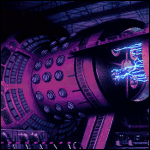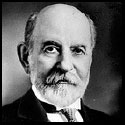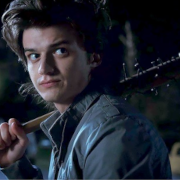|
I enjoyed most of the movie, but goddamn it, I just couldn't entirely get over the whole stupid suspension of disbelief that the premise demands. I understand the analogue of the train as a class system, but goddamn it every car they went through just raised further questions about how the civilization was sustained in any form aboard the monstrosity. Everything else was solid - the action, the pacing, and the questions raised are pretty great! But they don't quite overcome the all of nagging little questions that I'm left with. I acknowledge that it's extremely nitpicky for me to wonder about why the gently caress new suits and grooming are in enough demand to warrant an entire car, or why there's a dedicated party car, or any of the other thousands of things that make absolutely no goddamned sense in a closed ecosystem that demands absolute economical precision to sustain life as we know it (though perhaps even that could be construed as a commentary on the priority of luxury goods in the world economy? gently caress if I know.) I think that I'd have enjoyed it a little more if they'd just made the train....bigger. poo poo, give it a few more rails and make the train cars the size of apartment buildings, THEN I could swallow that it's been self-sustaining for 18 years. As it is, the whole closed system of the train makes absolutely no goddamned sense at all.
|
|
|
|

|
| # ? May 1, 2024 02:22 |
|
They didn't show them walking through every single car. The implication is that there are hundreds of cars. And there wasn't an entire car for new suits and grooming. That was clearly one person operating a "business" of out a sleeper car. They show a dentist in another room like 1 second later.
|
|
|
|
The train also runs on an engine that is literally physically impossible. The train is a metaphor. Trying to figure out the logistics of a metaphor is pointless.
|
|
|
|
Yeah I'm don't get the pro-leftist/Marxist readings...the apocalypse is brought on by a collective action by a united group of nations. Society in the train isn't capitalist at all - there is no currency, economy, or other signifiers that we see. In the school car there are lessons dedicated to the deification of the train itself, the kids are learning to worship the state. Wilford's entire purpose is to centrally plan and maintain the 'balance'. It's certainly not pro-capitalism by any means, but if anything the train resembles a failed socialist state, and the destruction at the end is pure anarchy. Great movie, really beautiful in parts, very well paced. Would watch again. Super bad guy in suit was kinda stupid though.
|
|
|
|
wyoak posted:Society in the train isn't capitalist at all - there is no currency, economy, or other signifiers that we see. In the school car there are lessons dedicated to the deification of the train itself, the kids are learning to worship the state. The train is not the state - the train is the capitalist system made immanent. It embodies all of the negative aspects of the capitalist system (great class disparity, the suffering of the poorest, degeneracy into mindless hedonism, etc.). Its existence is for no other purpose than to "keep the engine turning" (that is, to keep itself alive via endless "circulation"), thus preserving the privilege of those who benefit from living in luxury on the train as opposed to striking out beyond the train in an attempt to make a better future. Most importantly, the train is truly global: it does not belong to any state, instead traveling the entire length of the world, just as capitalism today is "de-territorialized," existing outside of the concept of states. Vermain fucked around with this message at 21:18 on Jul 12, 2014 |
|
|
|
wyoak posted:Yeah I'm don't get the pro-leftist/Marxist readings...the apocalypse is brought on by a collective action by a united group of nations. Society in the train isn't capitalist at all - there is no currency, economy, or other signifiers that we see. In the school car there are lessons dedicated to the deification of the train itself, the kids are learning to worship the state. Wilford's entire purpose is to centrally plan and maintain the 'balance'. It's certainly not pro-capitalism by any means, but if anything the train resembles a failed socialist state, and the destruction at the end is pure anarchy. There's probably a valid case to be made that it's more about authoritarianism in general.
|
|
|
|
DNS posted:There's probably a valid case to be made that it's more about authoritarianism in general. A proper socialism is necessarily tied in with anti-authoritarianism, so I don't disagree that this is part of it. The facts of the train - the limited amount of space, the use of slave labor to maintain the cracking engine, etc. - means, however, that a less authoritarian "government" (some kind of democracy or whatnot) would still run into the same problems that the authoritarian form faced. It's a statement about the fact that the logic of capitalism is inexorable. You cannot get rid of its structural flaws, regardless of what type of government you have in power.
|
|
|
|
Tezzeract posted:The best point that they made was that maybe the movie isn't an affirmation to the revolution/class struggle narrative and is actually a conservative critique to the blunt, stupid radical solutions This is what I took from the movie, myself. You've taken down The Evil Capitalist System, but what are you left with to create something new? Nothing.
|
|
|
|
You don't show a symbol of survival in harsh and unforgiving conditions at the very end of the film for no reason.
|
|
|
|
Vermain posted:You don't show a symbol of survival in harsh and unforgiving conditions at the very end of the film for no reason. Yup, and that symbol of survival in harsh and unforgiving conditions is going to eat you.
|
|
|
|
Who plays the badass henchman? Looks familiar, but I don't recognize anyone from scanning the IMDB page for the movie.
|
|
|
|
morestuff posted:Who plays the badass henchman? Looks familiar, but I don't recognize anyone from scanning the IMDB page for the movie. Vlad Ivanov, fabulous Romanian actor who was in 4 Months, 3 Weeks and 2 Days and Police, Adjective
|
|
|
|
Hmm, never got around to seeing those. Must just be my brain playing tricks.
|
|
|
|
I just got back from the theater, I really liked this movie but I agree that there's some pretty big plot holes. Since Tilda Swinton kept doing that hand motion for 'everything in its place', and it's the same motion the kids have to do in the engine compartment, does that mean the only upward mobility the tailies have is to become cogs in the machine? I also thought it was weird that they staged their revolution while they were in the coldest section of Russia, If Song Kang-Ho was right about the snow melting, they'd have a better chance for survival in Central America, or the Sahara. Evans could have taken over, waited 6 months, and stopped the train somewhere on the equator. I don't think the daughter was psychic. Song Kang-Ho was from the upper class before he was put in prison. I think she's half-remembering going with her father to the different cars for maintenance or something like that. Ed Harris' monologue also reminds me of the Architect scenes in the Matrix. He's all knowing, admits that the 'chosen one' is pre-ordained, and offers a Faustian deal to continue the system or destroy everything. Presumably, Harris would take over John Hurt's position, and they'd continue the cycle of fomenting revolts to control the population. I would have liked to see the indoctrination process that makes the tailies completely forget where they came from, in the case of the violinist and the children. That shaky-cam footage during the first stage of the revolution was completely unnecessary, and poorly done. More nauseating than impressive. VVV: The first or second credit is SK's Ministry of Tourism and Film or something like that. Which is great for a movie about smashing capitalism. red19fire fucked around with this message at 06:24 on Jul 13, 2014 |
|
|
|
I uh....doubt South Korea would be keen on a movie about a People's Revolution destroying capitalism, guys.
|
|
|
|
red19fire posted:
This theory doesn't make any goddamn sense. If I recall correctly she uses her clairvoyance four times in the movie, and none of them have anything to do with the layout of the cars. How exactly would having been inside the other cars before have told her that right that second there was no one in the next car, or that there's one guy who is currently running, or that they really shouldn't go in the next car cause there is a bunch of scary dudes with axes? Unless the train is much stranger than I realized I don't think the scary axe dudes are a permanent fixture of that particular car. Perpetual fucked around with this message at 09:43 on Jul 13, 2014 |
|
|
|
She also knew to pull up the floor panel in the engine.
|
|
|
|
morestuff posted:Hmm, never got around to seeing those. Must just be my brain playing tricks. Police, Adjective is excellent. I did not recognize that guy though.
|
|
|
|
red19fire posted:I also thought it was weird that they staged their revolution while they were in the coldest section of Russia, If Song Kang-Ho was right about the snow melting, they'd have a better chance for survival in Central America, or the Sahara. Evans could have taken over, waited 6 months, and stopped the train somewhere on the equator. Circumstances kinda forced their hand on some decisions. For one, how do the tailies know where they are? They have no windows, they can only possibly go by dates and considering the Yekaterina bridge came as a surprise they've probably lost all track of time back there. They didn't even know there was a tunnel afterward, so they really have never seen anything outside the train since they got on. As for blowing poo poo up instead of just taking over and getting off in a warmer area later, Namgoong forced them into it. He and his daughter wanted off, and set up the explosion while Curtis was distracted. He in turn did it then instead of later because he was being attacked by all the party-goers who chased them in there. Even had Curtis accepted becoming the leader, he would have been attacked immediately after.
|
|
|
|
Also keep in mind that absolutely no one but Nam was even thinking of getting off the train; the whole plan was just to stage this revolution in the closed system of the train in order to make their own lives better. They didn't know about the 'some parts are warmer than others' thing, and Nam only told Curtis about the 'world's warming up, y'all' thing near the end of the film.
|
|
|
|
MisterBibs posted:Yup, and that symbol of survival in harsh and unforgiving conditions is going to eat you. I suspect George Carlin would've loved this movie.
|
|
|
|
Perpetual posted:This theory doesn't make any goddamn sense. If I recall correctly she uses her clairvoyance four times in the movie, and none of them have anything to do with the layout of the cars. How exactly would having been inside the other cars before have told her that right that second there was no one in the next car, or that there's one guy who is currently running, or that they really shouldn't go in the next car cause there is a bunch of scary dudes with axes? Unless the train is much stranger than I realized I don't think the scary axe dudes are a permanent fixture of that particular car. Evans says Song is a security expert and not just a locksmith, so maybe he told her how the security is designed? I don't know, the psychic ability part isn't really addressed. I want to believe it's a side-effect of her addiction, remembering details about the security system from when she was a young child. The empty car was the barracks for the Hatchet Bros, they left in a hurry because they were assembling in the 'battle' car of the train. I think they represent the military industrial complex, since the revolts are pre-planned they're the last line of defense between the proles and the upper class.
|
|
|
|
Can anyone who's read the graphic novels comment upon similarities and differences? I know it's only recently been published in English, but I imagine there must be someone who's at least passingly familiar with it. I'm surprised that nobody has brought up that the climactic Engine Room scene is pretty much directly derived from Ursula K. LeGuin's short story "The Ones Who Walk Away from Omelas." In that story, there's a very similar revelation that the ostensibly utopian society is sustained by cruelty inflicted on one and only one person, a small child who is locked away in a closet without, is never shown love or compassion, is only given just enough food to survive. There's obviously differences. In LeGuin's utopia, the stress is on a single scapegoat, but in addition to the two children working in tandem to power the heart of the train, there's an entire underclass within this society. It's far from utopian in any sense, and there's really no 'disguise' of the suffering and exploitation which could have made it distopian. But Wilford's dinner with Curtis very much struck me as basically the same philosophical problem posed in LeGuin's story: In LeGuin's short story, the entire culture of the utopia is actually built around impressing upon its citizens the 'truth' of how perfection is created; children are forced to witness and accept that there will always be one person whose suffering buttresses the unity and peace of their society. Curtis and Nam's final actions make a lot more sense in the context of how LeGuin effectively suggests there are three main choices that the person may take in response to a culture predicated upon a scapegoat. The first is Curtis's response, which is the tendency towards revolution. In LeGuin's short story, everyone in the society initially goes through a 'phase' in which they refuse to accept the injustice of the society on the scapegoat. The vast majority, however, eventually realize that they themselves are too sutured into the fabric of society to reject it, that they can't conceive of a world without efficient, planned order. Curtis's existential crisis is that he learns that his revolutionary rhetoric is actually a part of the system, and that his initial solution ("kill them all") is actually exactly what Wilford wanted. He is still the baby-eater, but Gilliam/Wilford have cultivated his survivalist instincts in the hope that they will achieve the 'natural' Machiavellian conclusion: That Curtis is a Nat Turner figure; he is not motivated by collectivism, but an individualist who desires to escape all suffering. This is, of course, impossible. The second solution is to not destroy the society, but to attempt to save the scapegoat. After learning about his divinely mandated purpose, Curtis finally comes to redeem himself by rejecting his nature as the baby-eater. He, like Gilliam before him, gives up his own arm so that the child can be spared. The difference between Gilliam and Curtis now is that Gilliam acted as he did in preparation for a society of total survivalist equilibrium, choosing masochism instead of sadism. Curtis redeems himself because, while accepting that he is already doomed to be 'deformed' by the moral vacuum of the society he lives within, he chooses to synthesize both masochism and sadism in a way that defies the ultimate structure of survival itself. Removing the scapegoat means implicitly that society is doomed, but Curtis takes the position that it is better to act justly and for all to die than to continue to live in a self-cannibalizing cycle. Wilford/Gilliam frame suffering as a 'necessary evil,' but they prove only that they are willing to drat the rest of society along with themselves. The third solution is Nam and his daughter's. Nam has no desire to 'save' this sadomasochistic society, nor does he explicitly want to destroy it. He wants to 'walk away from Omelas' entirely because his disillusionment with the system does not lead him to believe that anyone is implicitly deserving of redemption. But rather than participating in a culture of sadomasochism, he wants to liberate himself entirely from the narrow constraints of the two possibilities offered by the previous two solutions. He wants to decide for himself and his daughter what is right and wrong outside of a circuitous system. By rejecting LeGuin's utopian/distopian pretense, Joon-ho consequently rejects its naive assumption that it is possible to liberate oneself with any less violence or destruction (of the self or of others) than to revolt or attempt to save the scapegoat. Though he and Curtis in his final hours could still never objectively agree, they both come to in some way accept that 'necessary evil' is a construct that replicates hegemony. I think Joon-ho is experimenting less with anti-authoritarian or anti-revolutionary tropes than with overarching constructions of moral values, and the possibilities of living 'beyond good and evil.' This is not to say that the film takes the cynical stance that I see others interpreting from its ending. To live beyond good and evil also means to live beyond inevitable compromises like 'necessary evil.' This isn't the Randian objectivist position, where consciousness precedes moral value. Rather, the film suggests metaphysically that moral values do precede consciousness, but that circuitous, binary moral values produce false consciousness. People dupe themselves into believing that they can 'be like Christ' and redeem humanity, but humanity proves itself of only being capable of tearing Christ's flesh, over and over again, learning nothing from sacrifice. When Yona and Timmy emerge as the sole survivors from the wreckage and stare in awe up at the polar bear, the thing that one should take away is not 'they're about to get eaten or freeze to death or die of malnutrition.' That's not the point. The point is that this is the first time either one of them has witnessed a living creature that exists outside of a planned equilibrium. At least for my part, I definitely took away from the film that Yona is clairvoyant. Since everything is unspoken, we can only speculate what Yona and Timmy's experience is. For me, Yona's clairvoyance produces a unique effect in response to the 'revelation' of the bear. The creature is not a portent of savagery but, quite the contrary, is an intelligent mirror of Yona's own consciousness. The bear has been 'waiting' for them, in the same way that Yona has been waiting for a world she can not entirely comprehend. Her clairvoyance, however, presents the possibility that she achieves enlightenment, that she is the first human within her society to achieve true consciousness. She comes to realize that the moral essence of everything is already equilibrium, but that equilibrium has nothing to do with survival. Rather, survivalism is revealed as an industrialized perversion, a last ditch effort to refuse to recognize man's place within the cosmos. Timmy, being the ultimate scapegoat, both traumatized and knowing nothing about the world outside of planned equilibrium, presents the most ambiguous aspect of the film's conclusion. Because he is not clairvoyant, and because the young actor clearly has a much different disposition in response to the bear than Yona (he seems distinctly emotionally passive and 'dead'), it is difficult to conclude that he experiences the same enlightenment. But from a certain spiritual perspective, this may actually be preferable to Yona's total enlightenment. Yona can potentially impart upon him the 'nature' of the cosmos, but because Timmy isn't privy to the same clairvoyance, he can only ever trust or distrust her teachings. He and Yona now tread the 'middle path' between transcendence and materialism. Well, why would this be preferable to spiritual enlightenment? Because this means that Yona and Timmy are potentially redeemed of human self-obsession (becoming 'like Christ / like Buddha') without abdicating their responsibilities to one another as intrinsically sacred vessels of life. They can reject the cynical underpinnings of man's materialist morality as well as those of messianic delusion, which both previously trapped humanity. They may die, but they will die as man's final representatives, having lost 'everything' but still finding the essence of compassion.
|
|
|
|
I read in a Korean language blog that Yona is not clairvoyant at all, but that she is, along with others who were born on the train, sensitive to the train's vibrations and the way sound carries. As in, no she can't predict the future, but being raised in the train she can sense what is going on without having to see it. I remember the director specifically saying "no she isn't psychic."
|
|
|
|
The Walking Dad posted:I read in a Korean language blog that Yona is not clairvoyant at all, but that she is, along with others who were born on the train, sensitive to the train's vibrations and the way sound carries. As in, no she can't predict the future, but being raised in the train she can sense what is going on without having to see it. I remember the director specifically saying "no she isn't psychic." If that was so common, it doesn't seem like Evans would be so surprised and specifically ask if she was clairvoyant.
|
|
|
|
His family name is Namgoong, not Nam. This was literally a scene in the movie, god drat.
|
|
|
|
K. Waste posted:Can anyone who's read the graphic novels comment upon similarities and differences? I know it's only recently been published in English, but I imagine there must be someone who's at least passingly familiar with it. The first graphic novel is where most of the plot and stuff for the movie comes from. The jail being more like a morgue is taken from the second graphic novel, but otherwise the movie is much closer to the first one than the second. In general, there's less action and fighting in the graphic novel, and it's not really about a massive revolution from the tail so much as the journey of one man from the tail to the engine, and the "equality for everyone" woman that he meets near the beginning. There's still plenty of commentary about class, and the excess of society while others needlessly suffer, and a story point of detaching the tail section because the engine is wearing out and slowing down. I posted a summary of the ending earlier in the thread. The second graphic novel, which I only recently finished, is quite a bit different, taking place on an entirely new (and somewhat bigger) train, and jumping forward in time at various points. It's also a lot more violent, with various revolutions and a whole lot of deaths. There's also a mad bomber who claims that they're all on a spaceship travelling away from Earth.
|
|
|
|
AnonSpore posted:His family name is Namgoong, not Nam. This was literally a scene in the movie, god drat. Chris Evans' character refers to him as "Nam" numerous times in the movie, so I'm sure you can forgive someone on an Internet forum for doing the same thing.
|
|
|
|
AnonSpore posted:His family name is Namgoong, not Nam. This was literally a scene in the movie, god drat. This post only makes sense if the character's name is Namgoong Nam and not Namgoong Minsoo. Multiple characters call him "Nam" for short the same way anyone would call someone by something quick/their last name/whatever when they're, like, in the middle of getting shot at/hacking through doors/being axed to death/etc. Not seeing the issue with this.
|
|
|
|
Gathered my thoughts somewhat on the movie here.
|
|
|
|
Just saw this movie this afternoon. I really enjoyed it, because any movie that's all about killing fascists and blowing up capitalism is a fun time in my book. Just one question, though, near the end, after Curtis stopped the engine but before the bomb blew up, and that sort of reactor core thing popped out of the engine, one of the kids that had been taken away popped out of his hiding place and climbed inside it, and neither I nor any of my other friends who saw the movie could figure out what he was doing there or why. Anyone have any ideas?
|
|
|
|
Well Manicured Man posted:Just saw this movie this afternoon. I really enjoyed it, because any movie that's all about killing fascists and blowing up capitalism is a fun time in my book. I think he was the next 'shift'.
|
|
|
|
I came here hoping to see some explanation why something so droll and disjointed could have gotten so many reviews. I guess the answer is politics?
|
|
|
|
The Walking Dad posted:As in, no she can't predict the future, but being raised in the train she can sense what is going on without having to see it. I remember the director specifically saying "no she isn't psychic." I guess 'Indian tracker' is a little less exciting than psychic, but all things considered, as others have mentioned, it doesn't really make much of a difference to the plot itself. That's part of what I liked so much about the movie. Especially in terms of Yona, her motivations and thoughts are left so consistently vague, but Joon-ho sells so much of its on her performance alone. Her relationship with Vlad Ivanov's character was particularly enigmatic. He's so drat menacing, and she clearly has a grudge against him specifically, but the drama itself is completely left up to the close-up. Even if some may have found these asides cumbersome and not particularly relevant to the ultimate conflict, I think they speak volumes about Joon-ho's fantastic sense of the cinematic.
|
|
|
|
I finally saw this tonight after hearing so many good things about it from critics and a buddy of mine who typically has great taste. As excited as I was to finally see this, I was a little apprehensive because I had no idea what to expect at all where usually I know at least a little something about the film before going. In this case all I knew was: train, snow, oppression of some kind. That said, I was very disappointed leaving the theater tonight. The beginning premise is a cool idea and I understand the concept of the entire story. In fact, the story itself is the film's best attribute and is fairly clever. I attribute this, however, to the fact that it's an adapted story so the film doesn't necessarily deserve much credit in that department. The film requires tremendous suspension of disbelief, and I understand that this is all for The Greater Metaphor but you still have to be able to enjoy a movie as it exists in its own right. Toward the beginning of the film the guy who gets his son taken away and then his arm frozen off, manages to have his arm completely frozen solid in 7 minutes. We're not told how much time takes place between then and the end of the film but it seems hard to imagine that in just a few days time the climate would have changed drastically enough where people could survive in it. The film gave me a huge Bioshock vibe which was really cool and I thought that it would have worked much better if the confinement of society was allowed to expand to something bigger than a train. Or even if the train was larger than about 15 feet across the entire way through. Again, I understand The Metaphor, but seriously... how can we even pretend to believe that life is possible like this? Not to mention the thud sound effect on every, single, punch that was landed and the awful awful shakycam toward the beginning. The fact that Ed Harris's last line before the explosion was simply "Nice" was so underwhelming and anticlimactic.
|
|
|
|
ShoogaSlim posted:The film requires tremendous suspension of disbelief, and I understand that this is all for The Greater Metaphor but you still have to be able to enjoy a movie as it exists in its own right. Toward the beginning of the film the guy who gets his son taken away and then his arm frozen off, manages to have his arm completely frozen solid in 7 minutes. We're not told how much time takes place between then and the end of the film but it seems hard to imagine that in just a few days time the climate would have changed drastically enough where people could survive in it. I think the idea there was that windchill played a major factor- he lost all feeling within a few seconds, then the pain came back later as his arm froze through. The stuff they rubbed on his arm looked oil-based and would have accelerated the temperature loss.
|
|
|
|
Cheston posted:I think the idea there was that windchill played a major factor- he lost all feeling within a few seconds, then the pain came back later as his arm froze through. The stuff they rubbed on his arm looked oil-based and would have accelerated the temperature loss. Yeah it's Windchill. I live in Minnesota and there are days when the difference between happy fun snow times and severe skin damage/finger amputation is a tight margin. That doesn't really matter though because at the pace the train travels it would be going through entire weather systems through the course of the movie, maybe even climate zones. And yes, the train was never meant to sustain life. The truth is it doesn't sustain life particularly well and it requires mass killings every few years and mass indoctrination to even maintain life on the train. The problem is that the movie ran on a budget of 39Million and was intended to run for 2 and a half hours. They had to reduce the number of cars initially intended and didn't have money for the CGI of Pacific Rim or Avatar.
|
|
|
|
I did actually forget about the lubricant that they smeared on the guys arm before sticking it out the window. And the idea that because the train moves so fast they would be in a totally different part of the world during the finale. That does help suspend disbelief a tiny bit more, which helps my overall satisfaction with it. Still not quite what I was expecting and tad bit too campy overall for my tastes. The film does spark some great discussion, though. And I'm sure it's been brought up before but I forgot to include it in my previous post, but Tilda Swinton was god drat incredible in her role. That being said, what was up with the part where she was begging Chris Evans not to kill her and she takes her teeth out? The audience laughed at that part where I assumed you were supposed to feel pity on her? It just seemed like a unnecessary addition. If it was supposed to illustrate that she's flawed too and "like" the rest of them, I'm not sure that it hit the mark
|
|
|
|
I wonder how much North Korea's insanity has influenced the direction of this film. Have there been interviews where they discussed inspirations from the North?
|
|
|
|

|
| # ? May 1, 2024 02:22 |
|
ShoogaSlim posted:And I'm sure it's been brought up before but I forgot to include it in my previous post, but Tilda Swinton was god drat incredible in her role. That being said, what was up with the part where she was begging Chris Evans not to kill her and she takes her teeth out? The audience laughed at that part where I assumed you were supposed to feel pity on her? It just seemed like a unnecessary addition. If it was supposed to illustrate that she's flawed too and "like" the rest of them, I'm not sure that it hit the mark I thought it was supposed to illustrate that she's pathetic enough to pull out all the stops when it comes to ensuring her own survival.
|
|
|





























